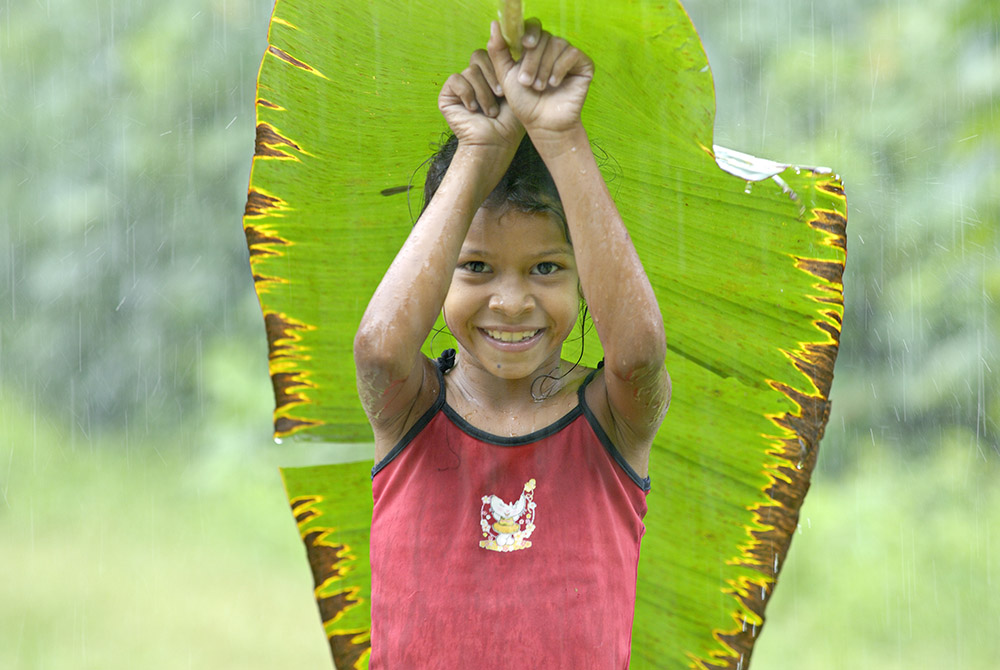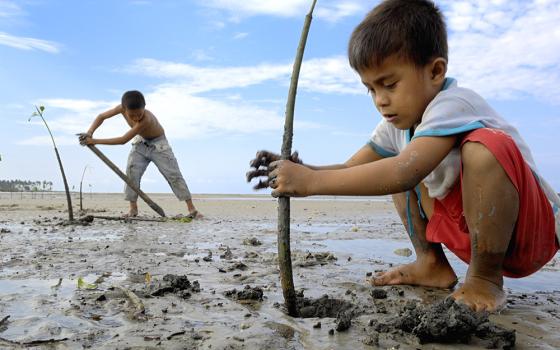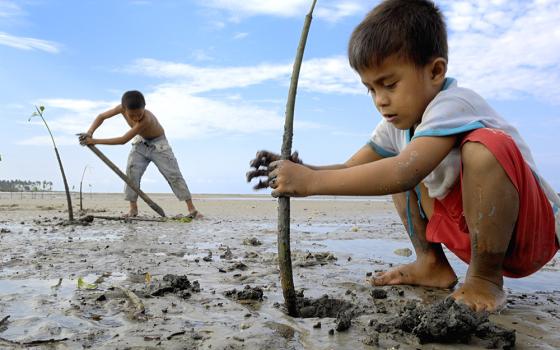
Yulimara Machin da Silva, 8, shelters herself from the rain with a leaf. (Paul Jeffrey)
Editor's note: This Season of Creation, join award-winning photographer Paul Jeffrey for "Lens on Creation" as he examines the world through the lens of his camera and his faith. Sign up here to receive Jeffrey's reflections in your inbox every Monday, Wednesday and Friday from Aug. 31 to Oct. 4.
Yulimara Machin da Silva, an 8-year-old girl, holds a giant leaf over her body as she runs through the rain in the Esperança Sustainable Development Project in northern Brazil. It's a community that incarnated the vision of Notre Dame de Namur Sr. Dorothy Stang that the people who live in the Amazon are its best defenders. Rather than a wilderness without human inhabitants, the jungle for Stang was an interconnected web in which humans could live in a sustainable manner.
When I first traveled to the region where Stang was martyred, on assignment for NCR, I was welcomed by Yulimara's family and the other poor folks with whom Stang had worked. As they showed me around their simple homes and farm plots, it was obvious that they saw themselves as an integral part of creation. They were the jungle, and thus were prepared to defend it with their lives.
Those who see the Amazon and other great forest lands as merely a commodity to be exploited for quick gain were threatened by Stang and the poor farmers she accompanied. So they arranged for her murder in 2005. Yet her killing wasn't an anomaly. In 2019, according to Global Witness, 212 land and environmental defenders were murdered — an average of four people a week.
For many of us in the global north, the word "nature" conjures images of Gore-Tex jackets and the latest in portable water purifiers. Yet for many of the world's poor, nature is their home. Stewardship is what they do to defend their livelihoods. Healing the Earth is not a slogan, it is survival, for them and for all of us who share a common planet.
For reflection and action:
Where is the place with which you identify most closely, where you feel most "at home"? What would you feel if it were threatened with destruction? How would you respond? How can you and your faith community stand in solidarity with people whose lives are in danger because they defend the places where they live?
[Paul Jeffrey is a founder of Life on Earth Pictures and lives in Oregon. You can follow him on Instagram.]
Advertisement






